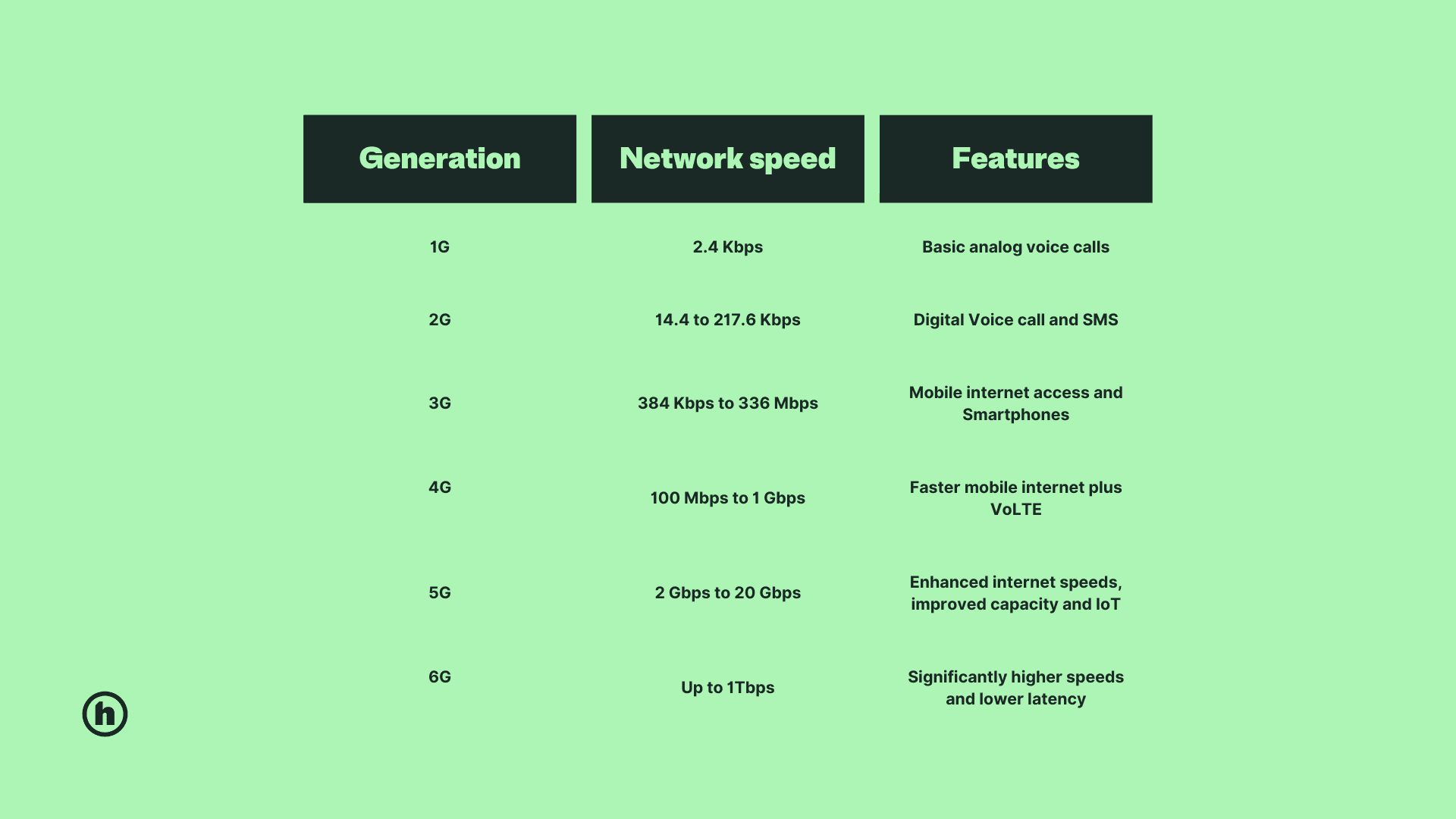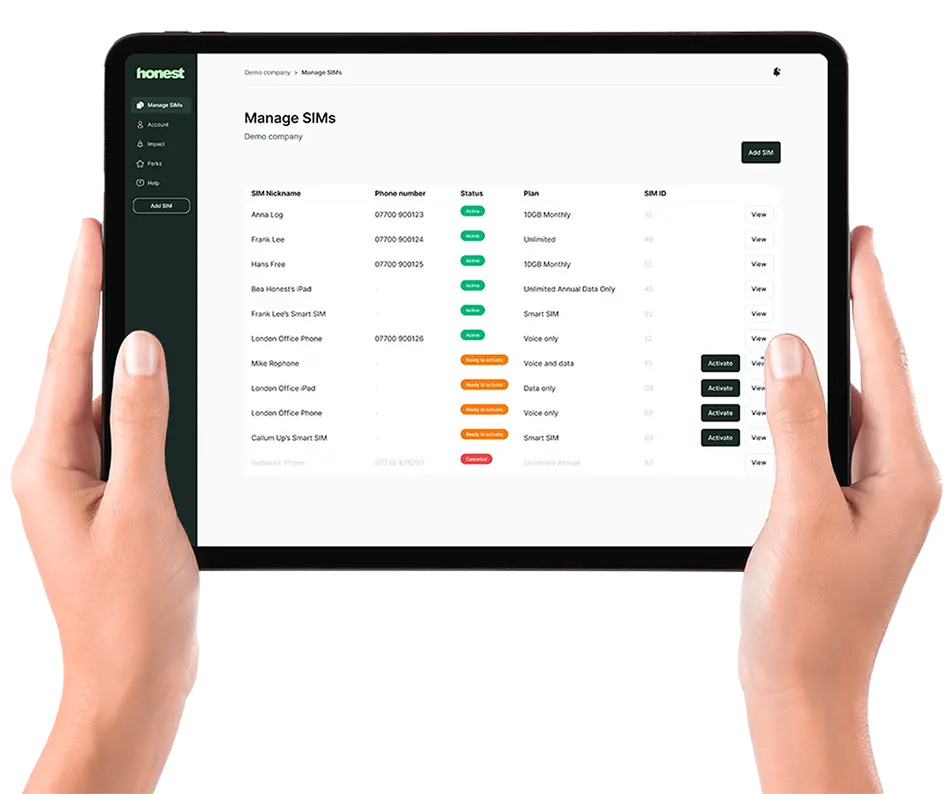6G internet: revolution or just evolution?
Game-changer or yet another buzzword? Let’s break it down.
6G (that’s the sixth generation of wireless technology for those not in the know) is the latest buzzword on every techie’s lips.
5G is still rolling out, yet 6G is already promising faster speeds, smarter systems and futuristic possibilities that sound straight out of Star Trek.
But is 6G really a leap forward for the tech world? Or just a shiny upgrade?
Let’s break it down and see what 6G might bring to the table.
What is 6G and why does it matter?
Think of 6G as the next step up in how we communicate. That goes beyond speed. While it will make things run quicker, it’ll also make tech smarter and more reliable, keeping your network running even in the busiest places.
6G could also go beyond your phone. Think self-driving cars, remote surgeries or virtual reality that feels so lifelike it’ll be hard to tell the difference.
It might sound a stretch, but so did ChatGPT and virtual reality a few years ago. 6G is on the cards, bringing with it possibilities that may not have even crossed our minds.
From healthcare to entertainment to the planning of cities, 6G will speed things up, make them safer and more efficient. As Techradar points out, these aren’t just pipe dreams, they’re ideas that could reshape the way whole industries work.
What makes 6G better or different to other generations?
Building on 5G and the generations that have come before it, 6G promises a leap forward in three key areas:
🏃Speed. Set to offer download speeds up to 1,000 times faster than 5G, 6G will satisfy even the most impatient among us. We’re talking downloading an entire movie in seconds and saying goodbye to buffering for good.
⏱️ Latency (the delay between sending and receiving data over a network). 5G introduced low latency with response times around 1 millisecond – 6G aims to smash this out the park and hit microseconds (that’s one millionth of a second).
📶 Capacity. The growing number of smartphones, devices and IOT tech demanding connection to masts makes running them smoothly more challenging. Enter 6G, which can handle more devices per square kilometer, meaning urban areas like stadiums and train stations can keep a strong signal without slowing down.

What does 6G mean for businesses and consumers?
For businesses, there are a few exciting 6G applications worth thinking about.
🧠 Smarter systems, smarter spaces. Picture warehouses with self-driving robots or farms using drones to care for crops—precision and automation working together to save time and resources.
🤝 Better customer experiences. Imagine AI that doesn’t just answer your questions but anticipates them. 6G could level up customer service, making it faster, smarter, and more human.
🤖 Simulated training. Simulations so immersive that remote teams can practice complex tasks like they’re on-site. Perfect for industries like healthcare or engineering, and cost-effective too.
🔗 Instant connections. Machines, devices, and sensors talking in real time, making processes smoother and cutting out delays. Think factories that adjust on the fly or cities that run more efficiently.
And for consumers?
🏠 Holograms at home. Picture concerts in your living room, shopping with products you can “see” in 3D, or gaming that feels like you’re a part of the action.
🚗 Safer streets. Autonomous cars could get even better with instant communication, reducing accidents and making traffic smoother.
📱 Smarter devices. AI-powered gadgets could bring more convenience to everyday life, making homes and tech feel even more intuitive.
🩺 Personalised health. Wearable tech could monitor your body in real time, offering insights and advice to keep you in tip-top shape.
6G and the environment: what’s at stake?
As exciting as 6G sounds, its environmental impact shouldn’t be overlooked.
While it promises faster speeds and more connected devices, all that data comes with a cost. To power faster networks, we’ll need more energy, bumping up our carbon footprints.
And with the push for new tech, there’s a real risk of even more e-waste. Every year, we throw away around 50 million tonnes of electronic devices. The race to get the latest 6G-enabled devices is likely to add to that pile.
But it’s not all bad news. 6G is also about making things smarter and more efficient. New networks could be powered by renewable energy, cutting the environmental impact.
Plus, 6G is being developed to support industries with real-time data. For example, those self-driving cars would be able to make split-second decisions to avoid accidents.
It’s tricky to say whether 6G will be an overall win or loss for the environment. Ultimately, it’ll come down to how we implement and use it.
When can I get 6G on my device?
Mobile networks typically follow a 10-year generation cycle, so 6G will likely roll out around 2030, with early prototypes emerging in 2028.
But don’t worry, your 4G or 5G device won’t suddenly become a paperweight. New generations build on existing tech, so you can keep your older devices with 6G for years to come.
Countries like Japan, South Korea and the U.S are already deep in research, setting the stage for how 6G might perform. For now, it’s more about figuring out how 6G could transform the way we live and work.
It’s early days, but the joint effort to define 6G is on.
A revolution or just evolution?
So, is 6G going to change life as we know, or simply give everything a bit of a polish?
At risk of getting splinters from sitting on the fence, the answer is a bit of both.
Think of it like going from VHS tapes to streaming. It’s still delivering content, but with bigger possibilities and a much greater experience.
With holographic calls, split-second decisions from self-driving cars, and whole cities running smarter, 6G could bring a sci-fi world to life.
But rather than starting from scratch, it’ll be building on the foundations set by 5G to be better, faster and able to handle more. It’s more like a supercharged evolution than a full-blown revolution.
The question now is: what will we do with it? 6G is only as helpful as how it’s used. Will it make our lives easier, more sustainable and safer? Or will it come with a cost?
One thing is certain. 6G is on its way, bringing with it the chance to rethink how we connect – in ways that aren’t just smarter, but greener, too.
Interested in finding out more about straightforward SIM plans that don’t cost the earth? Head to our personal or business page to get started.

Find the perfect plans for your business
Take our quick quiz to get a recommendation tailored to your business

Explore the Honest hub
Discover how our self-serve platform takes the time and hassle out of managing your work phones
Want to hear more from Honest?
Subscribe to our newsletter. (It’s fun, promise).
